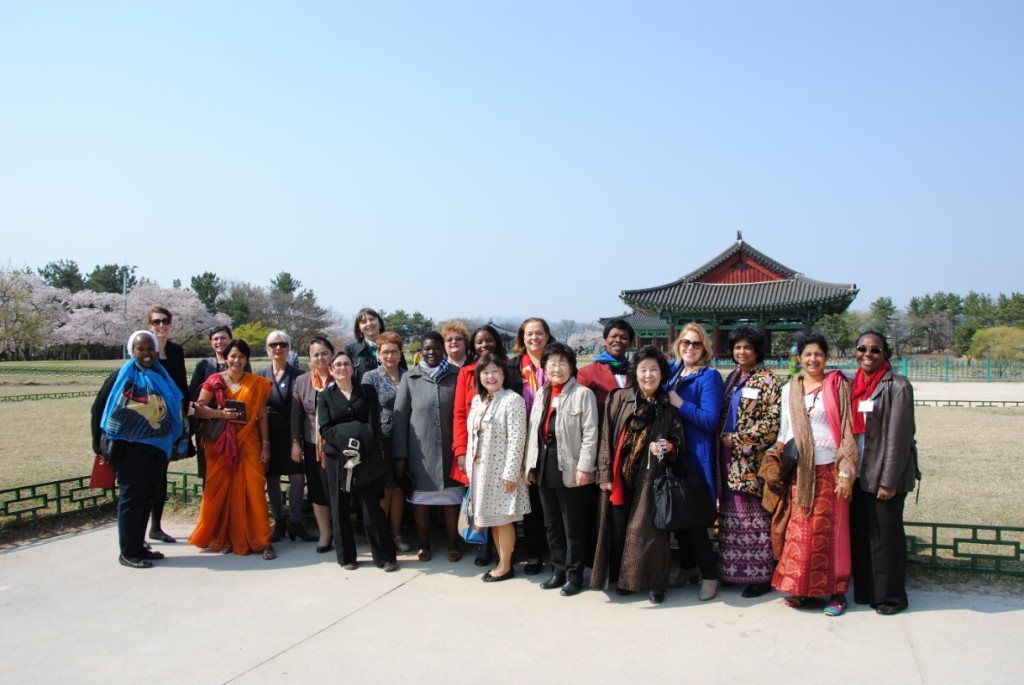
7th World Water Forum, South Korea, 10 – 17 April, 2015
The World Water Forum is the world’s largest meeting on water. Every three years, the World Water Forum mobilizes creativity, innovation, and know-how around water. The World Water Forum consists of at least three processes: the Political Process, the Thematic Process and the Regional Process, while gathering officials, legislators and local and regional authorities from more than 150 nations. Each topic is developed in cooperation with the private sector, governments, industry, IGOs, NGOs and academic groups into a common framework of goals and concrete targets to reach. AWHHE was very active before and during the 7th World Water Forum in South Korea from 10 – 17 April 2015.
On behalf of AWHHE Ms. Emma Anakhasyan participated in the pre-conference on “Gender Equity for a Water-Secure Future” organized by the Women for Water Partnership in Gyeongju, Gyeongbuk, South Korea, on the 10-11th of April 2015. She presented the principles and requirements of the Protocol on Water and Health. The Protocol promotes equitable access, water and health relationship, emphasizes public participation in decision-making and responsibility and accountability of governmental policies and programs to the public.
This discussion offered an opportunity to introduce the organization and its capacity at a high level, to share the successes, as well the difficulties relating to financial challenges of women’s organizations.
During the pre-conference, recommendations and ideas for implementation were developed and presented per theme by the members of WfWP during the “Thematic Special Session 21 Women for a water secure world: past, present and future” held in Daegu, on the 15th of April. Ms. Emma Anakhasyan introduced the outcomes of the pre-conference on “Enough Safe Water”. Recommendations were formulated to implement and upscale solutions to achieve a water secure future where gender equality is the norm.
Women play an important role in water management, making multiple and maximum use of water sources. Active women have leadership and networking opportunities using their capacities effectively being part of Active Women’s Groups.